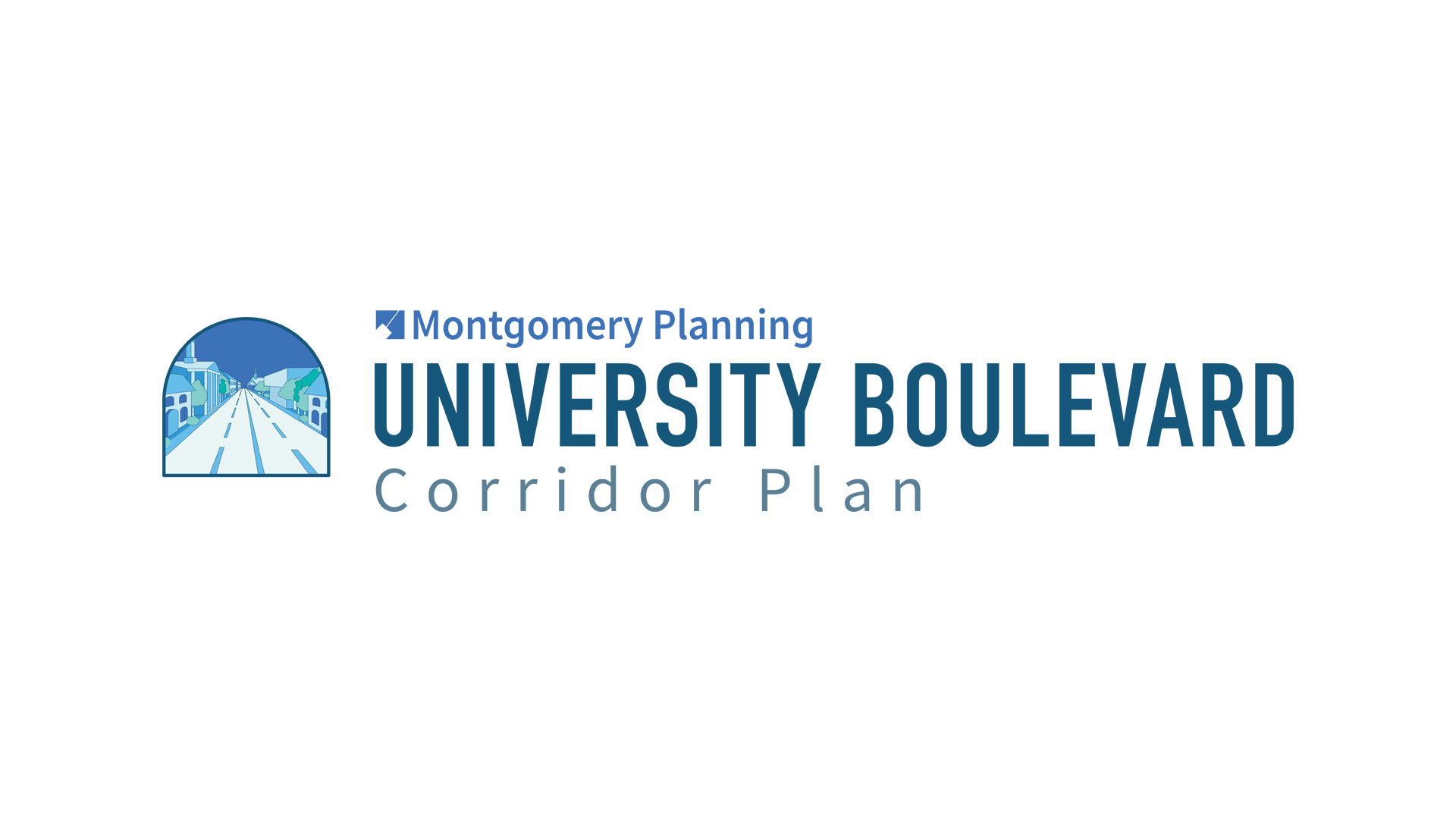 Newly launched plan focuses on improvements surrounding a three-mile stretch of University Boulevard/MD 193 between Wheaton and the Capital Beltway
Newly launched plan focuses on improvements surrounding a three-mile stretch of University Boulevard/MD 193 between Wheaton and the Capital Beltway
WHEATON, MD – The Montgomery County Planning Department, part of The Maryland-National Capital Park and Planning Commission (M-NCPPC), will host two community meetings in March to provide updates and receive additional feedback on the University Boulevard Corridor (UBC) Plan. The UBC Plan effort launched in November 2022.
At the meetings, to be held in-person at Northwood High School on Wednesday, March 8, and on Zoom on Tuesday, March 14, Montgomery Planning will report back on the feedback it received during the UBC Plan’s first community meetings held last fall and provide additional information on transportation-related elements of the plan.
Visit the University Boulevard Corridor Plan’s website for more information and community resources.
“We encourage community members to come to these upcoming meetings to learn more about the plan, ask questions and tell us what they would like to see in the future for the University Boulevard corridor area,” said project manager Nkosi Yearwood. “This is just the beginning of the planning process, and we look forward to working with the residents, businesses and other interested stakeholders in the corridor to equitably engage the community as this plan progresses.”
Register for the Community Meetings
In-person meeting
Wednesday, March 8, 7 to 9 p.m.
Northwood High School (919 University Blvd W, Silver Spring, MD 20901)
Register for the in-person meeting
Virtual meeting
Tuesday, March 14, 7 to 9 p.m.
Webinar registration – Zoom
The Montgomery County Planning Board approved the UBC Plan’s Scope of Work at the Feb. 16 Planning Board meeting. The Scope of Work defines the proposed plan area, context, and background, planning framework, issues to address for the plan, public engagement, and the plan timeline.
Read the University Boulevard Corridor Plan Scope of Work
UBC Plan Area
The UBC Plan builds on major Montgomery County initiatives—including the 2013 Countywide Transit Corridors Functional Master Plan, Thrive Montgomery 2050 and Vision Zero – and is centered on residential neighborhoods, schools, parks, places of worship, businesses, and other institutional uses along a three-mile segment of University Boulevard/MD 193 between Amherst Avenue at the edge of the Wheaton Central Business District (CBD), to the area immediately south of the Capital Beltway (I-495). The Four Corners area serves as an important element in the plan area with commercial and institutional properties, including the Woodmoor Shopping Center, Montgomery Blair High School, and Saint Bernadette Catholic Church and School. Colesville Road (U.S. 29) is a major intersection with University Boulevard in the plan area.
Purpose of the Plan
The purpose of the University Boulevard Corridor Plan is to comprehensively review the built, natural, and social environments along the corridor and consider opportunities to further the outcomes and objectives of Thrive Montgomery 2050, the county’s new General Plan. The Scope of Work is the result of multiple public engagement activities to understand the needs and desires of those who live in, work in, or visit the corridor. Moving forward Montgomery Planning staff will continue to engage the community to understand its needs to make transportation safer and more accessible and equitable, to address the effects of climate change, and to ensure the corridor is economically competitive. Planning staff will also work with the community to explore opportunities to redevelop underutilized spaces, create new bikeways and faster, higher quality, and more reliable bus service (also known as bus rapid transit or BRT). Transforming the corridor into a boulevard with wider sidewalks and safe, comfortable access to transportation stops will also be studied. Montgomery Planning will apply an equity and social justice lens to policies and practices in the planning process.
Planning staff will also review the following elements as part of a holistic, equitable approach to shaping the future of the UBC:
Land Use and Housing
Community Facilities
Parks and Open Spaces
Safety, Mobility, Access, and Connectivity
Urban Design
Historic Resources
Plan Timeline
- November 2022: Launch of plan development process and initial community engagement
- Spring 2022-Fall 2023: Community engagement, plan analysis, and staff review
- Fall 2023-Spring 2024: Planning Board review
- Spring 2024: County Executive review
- Summer-Fall 2024: County Council review and approval